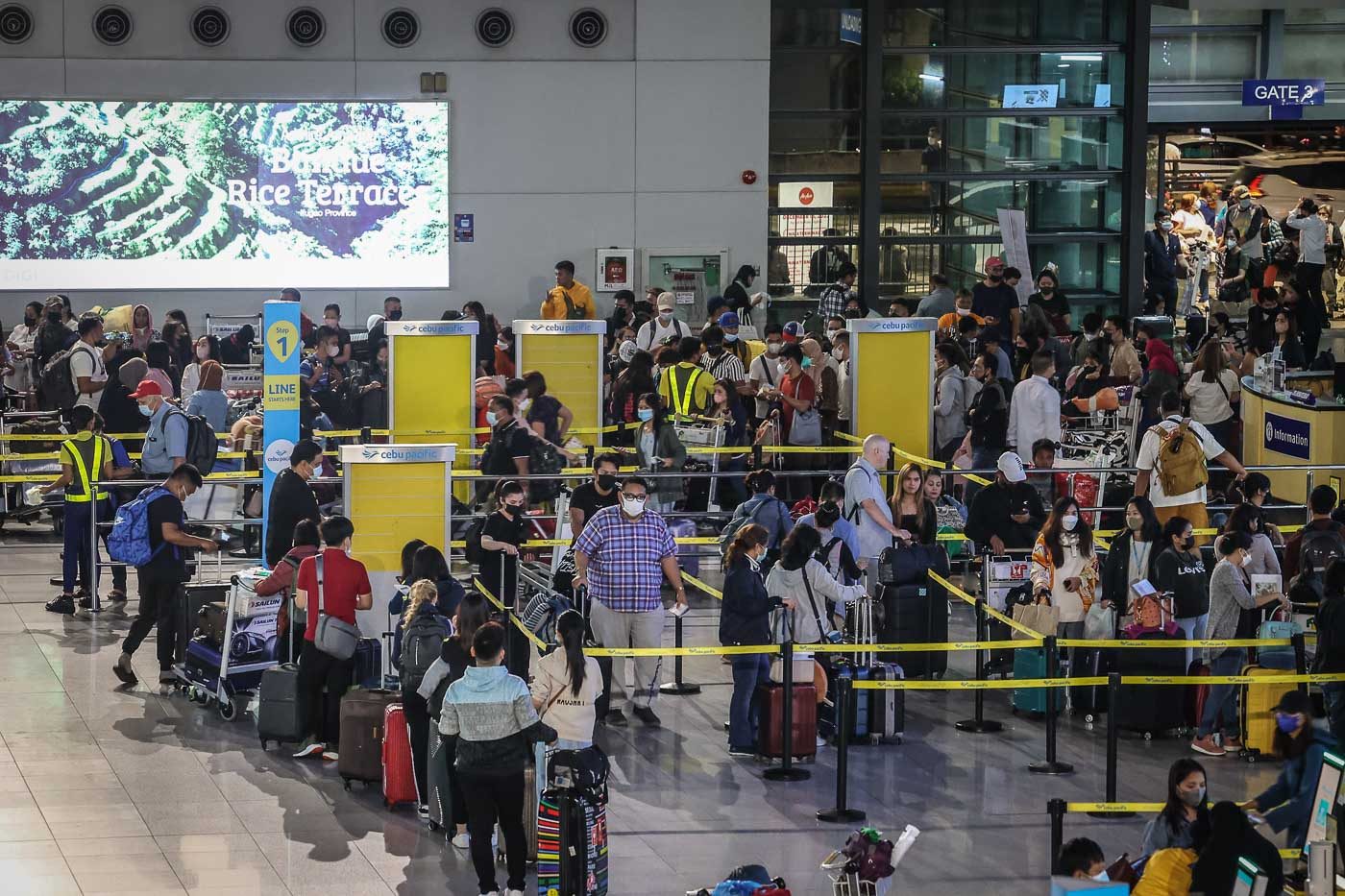SUMMARY
This is AI generated summarization, which may have errors. For context, always refer to the full article.

MANILA, Philippines – Ahead of a Senate probe into complaints against airlines, carriers are now blaming frequent flight cancelations on issues with spare parts and maintenance scheduling.
“Ito, aside from spare parts, pati ‘yung slot sa maintenance facility, wala din. Nagkakakulangan,” Cebu Pacific chief marketing and customer experience officer Candice Iyog said in a Radyo5 interview. (Aside from spare parts, we also can’t get slots in the maintenance facility. There’s a shortage.)
The budget airline explained that the service delays meant that damaged aircraft couldn’t immediately be repaired, causing flight cancelations. For instance, if an aircraft experiences a bird strike and there are no standby planes on the ground to pick up the slack, the flight may need to be canceled. Lightning alerts during stormy weather also force airport operations to halt, leading to more sudden cancellations.
On Monday, June 19, alone, Cebu Pacific said it had 10 “unplanned cancelations.”
“Last week, our on-time performance was mababa (bad). Mga nasa (It’s only around) 50% to 60%, which is bad,” Iyog said on Tuesday, June 20.
In response, the low cost carrier reduced its flight schedule. This would free up more spare aircraft to accommodate sudden cancellations and provide a bigger buffer in the system. Iyog said that the move had caused Cebu Pacific’s on-time performance to improve, albeit to a still-unimpressive 75%.
Philippine Airlines (PAL) too was affected, with three flights on June 16 being canceled due to an “aircraft situation.” The cancellations coincided with the first day of PAL’s terminal transfer, causing passenger traffic to build up.
“We sincerely apologize to our passengers affected by several flight cancellations that we experienced this week,” the flagship carrier said in a statement sent the following day. “Several aircraft had to undergo maintenance due to ongoing supply chain delays and unexpected technical issues that developed.”
Airlines around the world have also reported running into similar issues. Pratt and Whitney, the engine provider of Cebu Pacific, was also blamed by the third largest Indian airline for the grounding of about half of its fleet, eventually leading the airline to file for bankruptcy.
The alarming frequency of flight cancellations – which have ruined vacations, business deals, and life events – has left a bad taste in the mouth of many affected passengers, who have accused the airlines of making “arbitrary” cancellations and overbooking flights. Cebu Pacific, for one, has denied allegations of overbooking, explaining that passengers may be bumped off due to flights being reassigned to smaller airplanes.
The Senate committees on tourism and on public services will start its investigation into these overbooking and offloading complaints on Wednesday, June 21.
– Rappler.com
1 comment
How does this make you feel?
![[EDITORIAL] Panagutin ang mga airline, hindi na puwedeng sorry na lang!](https://www.rappler.com/tachyon/2023/06/animated-airline-woes-carousel.jpg?fit=449%2C449)
This is related to the pratt and whitney maintenance backlog that has grounded aircraft from other airlines.